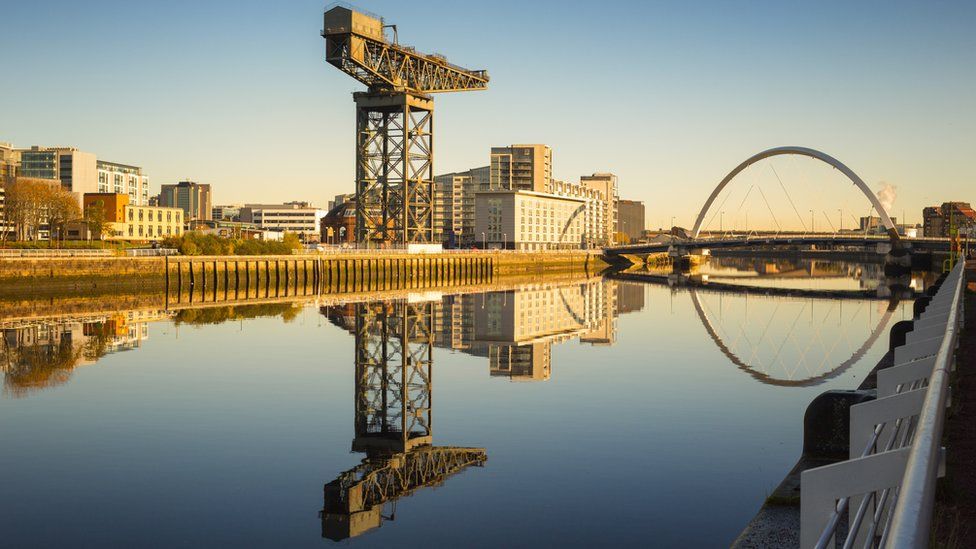River Clyde 'healthier and stench-free'
- Published

Salmon are able to access parts of the River Clyde for the first time in decades following work to improve water quality and remove barriers.
The Scottish Environment Protection Agency (Sepa) said millions of pounds of investment had reduced pollution and restored habitats.
The work has also put an end to the Clyde's "stench", Environment Secretary Roseanna Cunningham said.
Water quality has gone from "bad" to "moderate" - and "excellent" in places.
About 100km (62 miles) of waterways has also been opened up to migratory fish.
Sepa, which monitors the water quality of Scotland's lochs and rivers, reported that the River Clyde was in "significantly better health than expected".
Between 2010 and 2021, Scottish Water will have invested more than £600m in wastewater treatment works and sewerage systems in the area.
And the Scottish government's Water Environment Fund has helped restore habitats by removing fish barriers and concrete channels.
This has allowed salmon to access the upper reaches of the Clyde catchment.
The fund has spent £3.1m on river restoration projects near Hamilton and Shotts, with more investment planned this year.
Scottish Environment Secretary Roseanna Cunningham said: "The Clyde flows through the very heart of Glasgow and for centuries the river has provided our largest city with a gateway to the world and a source of prosperity.
"However, since industrialisation in the early 1800s, we've abused this river, tipping our waste into it without a second thought for the impact it has on the communities living along the banks, water quality or the wider environment.
"That's why I am delighted to see further evidence that we have secured a lasting change in the Clyde's fortunes."
Ms Cunningham added: "That hard work and investment has seen water quality improve, aquatic species return to the waters, and an end to the stench which once made residents' lives a misery."
The 176km (109 mile)-long Clyde is the eighth longest river in the UK and the second longest in Scotland.
Its source is in the Lowther Hills in South Lanarkshire, with its catchment area stretching as far north as Crianlarich in Stirling.
The river's mouth is the Firth of Clyde.
Bob Downes, Sepa chairman, said: "The work we have completed so far with our many partners has made a significant difference to the Clyde, not only through improvements to water quality, but also by opening up stretches of rivers that migratory fish have been unable to access for decades.
"Having a healthier River Clyde system is a real benefit to people living in Glasgow. We need to ensure that our rivers are in as good a condition as they can be, providing a healthy environment and contributing to everyone's well-being.
"There's still a lot of work to be done, but seeing the results of the hard work that has already happened is very rewarding and encouraging."